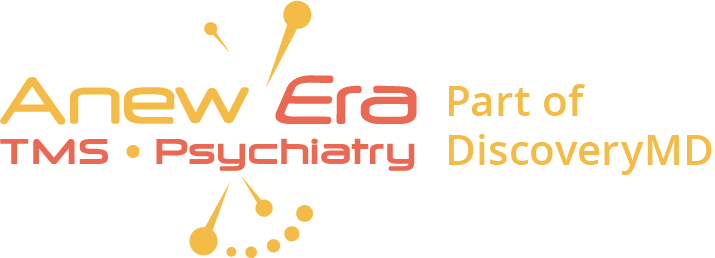What to Do When Antidepressants Don’t Work
TMS an Alternative Option When Antidepressants Don’t Work
When the dark veil of depression fails to lift, even while on antidepressant drug therapy, it can lead to feelings of frustration and despair. Perhaps your doctor has had you trial two or three different antidepressants, but depression symptoms persist unabated. Instead, with side effects from the drugs were difficult to tolerate, antidepressants may have even left you feeling worse off.
You are not alone. According to the STAR-D trial results, a landmark study of 4,000 participants with depression who were treated with an antidepressant, only 28% achieved symptom relief after the first trial. After four trials, still only 2/3 of the participants entered remission. This means that 1,300 depressed patients did not experience remission from their depression, leaving them to wonder what to do when antidepressants don’t work.
Treatment-Resistant Depression Explained
In general, when an individual realizes they are stuck in a mentally dark place they usually first seek help from their primary care physician. The PCP will often prescribe one of the many antidepressants available on the market for the patient to trial in hopes that it will offer some relief. If the medication has not helped depression symptoms in four to six weeks the doctor may change the dosage or change to a different antidepressant medication. The patient will then trial that prescription for up to six weeks. When the trialing process is still not successful, the patient is likely to be referred to a psychiatrist who can be better qualified to know what to do when antidepressants don’t work. The psychiatrist can order psychotherapy and continue to tweak the medication.
If, after trialing four or more antidepressants and participating in talk therapy relief still eludes the patient, the doctor will diagnose the patient with treatment-resistant (or refractory) major depressive disorder. This fruitless process of trialing various medications increases the patient’s sense of hopelessness, especially if they have also experienced the adverse effects from the drugs, such as nausea, weight gain, insomnia, sexual dysfunction, and fatigue.
TMS Can Help Treatment-Resistant Depression
Patients wondering what to do when antidepressants don’t work should consider a safe and effective alternative depression therapy called transcranial magnetic stimulation (TMS). TMS is a brain stimulating treatment that relies on magnetic fields to help reset brain chemistry, leading to improvements in depression symptoms. The individual is fully alert during the TMS therapy sessions, and can pass the 40 minutes by watching television, reading, or listening to music.
TMS works by delivering the magnetic pulses through a coil that is placed over their scalp, positioned so the electromagnetic currents will target the limbic region of the brain. As the sessions proceed over a 4-6 week period, the sleepy brain cells in this mood center of the brain are stimulated, causing biochemical and connectivity changes that help rebalance neurotransmitters. The result is more energy, improved mood, better sleep, and improved concentration.
Is TMS Safe?
Ongoing clinical studies continue to demonstrate that TMS is both safe and effective for helping patients with treatment-resistant depression. Because, unlike electroconvulsive therapy, TMS requires no sedation, it does not come with the risks associated with general anesthesia. Because there is no sedation needed, patients can immediately resume their normal activities following treatment.
TMS has been shown to be well tolerated. Again, when compared to other brain stimulation techniques that come with risks of memory loss or concentration problems, TMS has had only minor side effects reported. Some patients have experienced mild to moderate headaches, but this effect resolves spontaneously as treatment progresses. Others may experience some mild irritation on the scalp where the pulses are delivered, but that, too, is a temporary effect.
Anew Era TMS & Psychiatry Offers Expert TMS Therapy for Treatment-Resistant Depression
When a patient with treatment-resistant depression wonders what to do when antidepressants don’t work, Anew Era TMS & Psychiatry offers new hope with TMS therapy. Anew Era TMS & Psychiatry provides this promising treatment for persistent depression at their comfortable California offices, performed by trained TMS expert doctors and technicians. For more information on the successful application of TMS in treating depression contact Anew Era TMS & Psychiatry today at (888) 503-1549.











